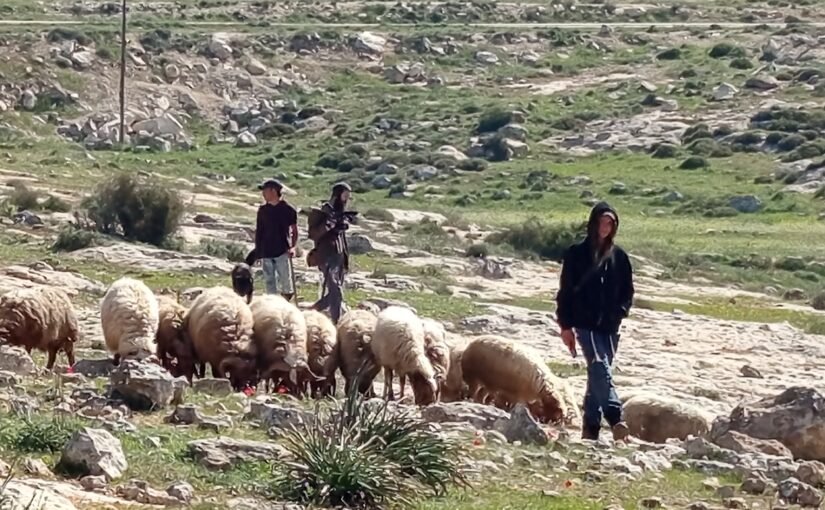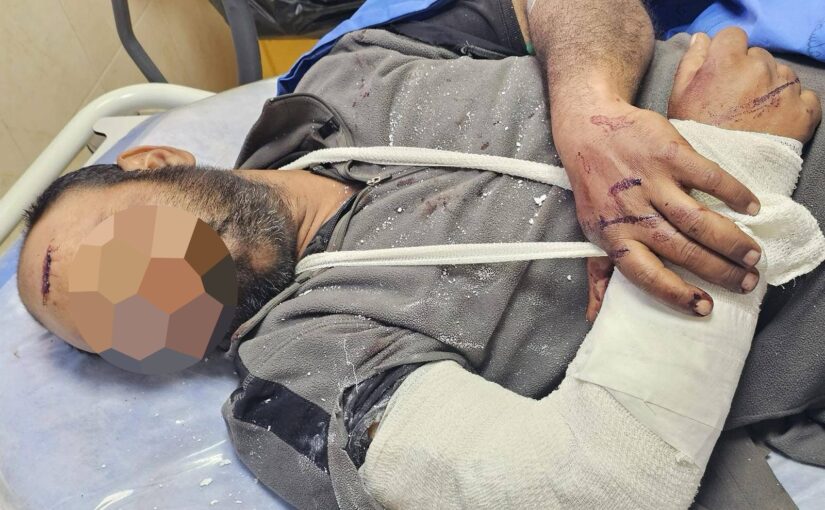-
ISM Bristol fund
This money has been raised with collective effort and special thanks to the generosity of squatters, to give some financial support to poor/ working class folks from Bristol and surrounding areas who would like to work with ISM on the ground in Palestine. This money was raised to fund individuals whose experience will benefit the […]
-
Ethnic cleansing in Masafer Yatta: a focus on Susiya
Susiya, Masafer Yatta In 1986, Israeli Occupation Forces expropriated the land of the Palestinian village of Susiya and expelled the Palestinian residents under the pretext of archaeological remnants of a synagogue, and handed it over to the residents of the illegal Zionist settlement established 3 years previously (the settlement is named “Susya”). In the remaining […]
-
Two Palestinian shepherds hospitalized following brutal attack by Israeli settlers in Khirbet Hammamat al-Maleh al-Meetah
On March 11, 2025, at least six Israeli settlers violently attacked two Palestinian shepherds in Khirbet Hammamat al-Maleh al-Meetah in the northern Jordan Valley. The brothers, Ghanem Eid Zawahra and Muhammad Eid Zawahra, were shepherding on Palestinian land when a black settler vehicle approached them. Settlers exited the vehicle and beat the shepherds with iron […]
Action Alert An Nabi Saleh Apartheid Wall Arrests BDS Bethlehem Bil'in Cast Lead Demonstration Denial of Entry Ethnic Cleansing Farmers Gaza Global Actions Hebron House Demolition International law Israeli Army Jerusalem Live Ammunition Nablus Ni'lin Prisoner Ramallah Rubber-coated steel bullets Settlement Settlers Settler violence Tear-Gas Canister Video


